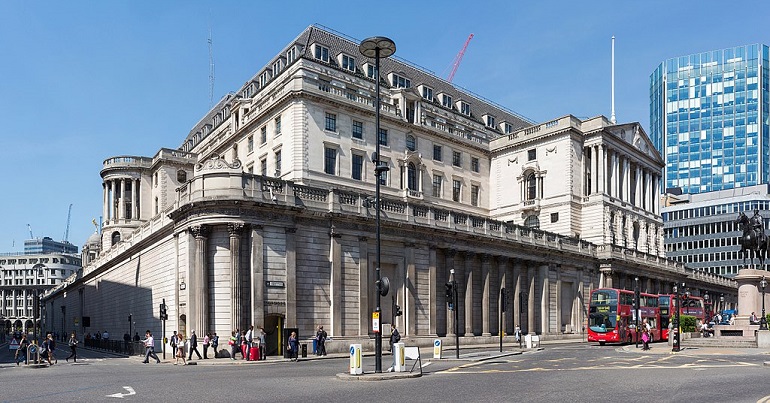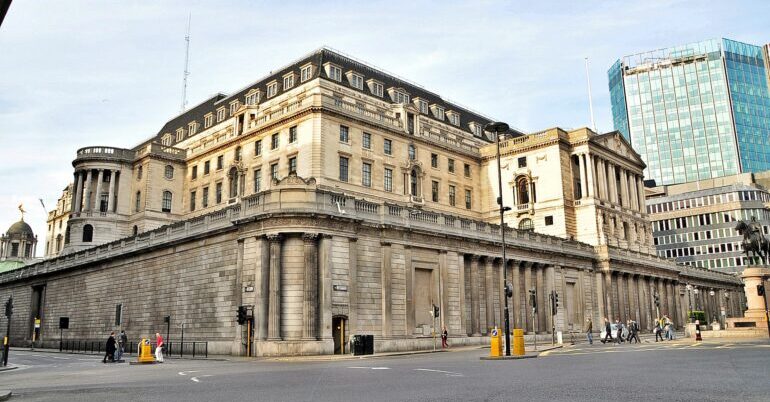The Bank of England has taken a step towards accountability. But it needs to go further.

This Tuesday the Bank of England conceded to pressure to make public the names of the firms it was supporting. But it also imposed conditions on partaking in the facility. This was a small step to greater public accountability of the Bank.
As a response to the Covid-19 crisis the Bank of England has – along with other central banks – engaged in a massive stimulus to support the economy, including the purchase of corporate debt. Overall, in direct support, the bank is injecting at least £200bn into financial markets alongside a relaxation of capital reserves regulation, repo rate actions and an interest rate cut. Much of the £200bn will go to buying government bonds supporting UK government debt alongside the unprecedented direct support the Bank is giving the treasury though expanded use of the Ways and Means facility.
Corporate debt purchasing continued
Within this £200bn there will £10bn purchases of corporate debt purchases expected in April continuing the Cooperate Bond Purchasing Facility first launched in April 2016. This form of corporate welfare is problematic as previously highlighted in Bright Green.
The Bank of England provides a sectoral breakdown of investments for this programme, which allowed analysts like Ulrich Volz that illustrated that quantitative easing programme provided more support to the larger indebted firms with high carbon impacts than the overall market.
Covid corporate financing facility
In contrast, the Bank’s more expansive other corporate welfare scheme not only planned to keep participant’s details confidential, but asked firms to sign confidentiality agreements. The Covid Corporate Financing Facility was set up, with the treasury, to allow firms to issue commercial paper – a form of debt that would be brought up by the bank based on the firms’ credit rating on the 1st of March. Discourse at the time of writing suggests the scheme has provided nearly £19 billion in credit to the 50, or so firms with 100 more signed up as eligible.
There were no conditions placed on firms, other than making a substantive contribution to the UK economy. This effectively gave them cheep money with few strings attached.
Public backlash
Despite limited media attention, the campaign group Positive Money launched a petition against the confidentiality clause that has received over 5,000 signatures. Positive Money’s media officer told Bright Green:
Our campaign was so successful because of how shocking it is that public money was being used to bail out Britain’s biggest corporations, without the public being allowed to know where exactly that money was going. There is a strong public mood in favour of ensuring that the response to the Covid-19 crisis is as democratic, fair and sustainable as possible.
Meanwhile Easy Jet – one of the early beneficiaries who had also made dividend payments to shareholders even as they sought a bailout almost – instantly broke their confidentiality clause.
This week the bank backed down, issuing a press release accepting not only that they would reveal the names of the benefiting firms but also that they would extend the conditions attached to the loans. Now the firms would have to give undertakings to the treasury that they would not pay out management bonuses, dividends or other capital distributions until the Bank has been reimbursed.
Further implications
When engaging in ‘market operations’, the Bank needs to remain market neutral, as is fitting for a powerful unelected body. It cannot make decisions on this outside its mandate for financial stability, as the Bank needs to remain market neutral. However, the Bank of England under old governor Mark Carney was at the forefront of mainstreaming the argument that climate change represented a threat to financial stability.
The Bank before lockdown was indicating that it only needed treasury approval to implement sustainability criteria for market operations. Now that it has imposed conditionality, even at the basic level that management should not be paid public money, as their firms collapse, it could follow the example of Canada and impose the other basic requirement firms should not take public money and use it to destroy human civilisation.
Central banks over the last few decades have gained increasing independence from government and become more powerful forces shaping our everyday lives. This is set to continue with the Covid-19 response. This week, the Bank of England took a welcome step in opening up to scrutiny. It needs to travel along the rest of the road of accountability more rapidly.
PS. Bright Green has big plans for the future, but we need your input. Take 2 minutes to see what we’re planning and tell us your thoughts.
Image credit: Diliff – Creative Commons


Leave a Reply